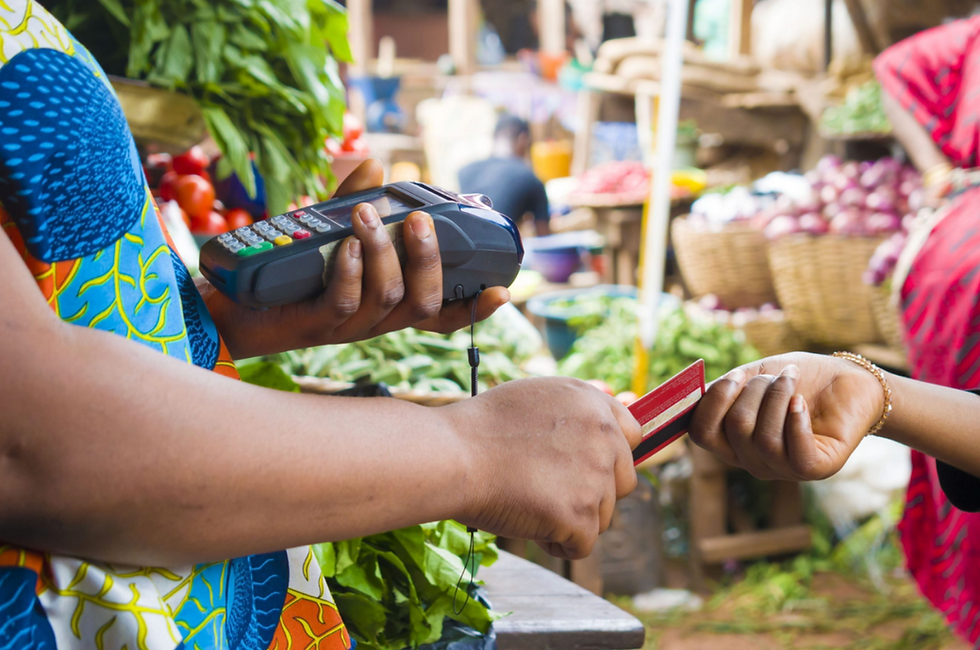The University of Miami’s Law Review publishes issue on the Right to Food in the U.S.
- alisoncohenrtf
- Jan 30, 2024
- 4 min read
Updated: Sep 9, 2025
January 30, 2024

The University of Miami School of Law recently published a special issue of its International and Comparative Law Review that explores the right to food through the lens of art, analyzes nutrition entitlement programs, and discusses the social transformation necessary to address the challenges of food insecurity at the intersection of racial discrimination.
The law review issue includes an overview of the symposium on Food, Housing and Racial Justice that took place on April 13-14, 2023 at the University of Miami Law School and hosted by the Human Rights Clinic. During the symposium, a people’s tribunal was held that was focused on Miami’s ordinance criminalizing the sharing of food to people experiencing homelessness in a group of 25 or more. The symposium also contained a day-long National Right to Food Community of Practice strategy session. You can access the full symposium overview here.

Symposium speakers and organizers also contributed to this special issue of the law review. In their article, Joshua Lohnes, a Coordination Team Member of the National Right to Food Community of Practice, and Mackenzie Steele, a University of Miami Human Rights Clinic law student, explore the fluctuation of the right to food in South Africa and Ecuador before turning to a U.S.-based case study of the implementation of nutrition entitlement programs in West Virginia, such as SNAP and school nutrition, and their relevance to the progressive realization of the right to food. You can read an excerpt from the article below and access the full article here.
Excerpt from: The Uneven Legal Geographies of Nutrition Entitlement Programs in the United States. Realizing or Hindering the Right to Food? University of Miami International and Comparative Law Review, 16 January 2024.
By Joshua Lohnes and Mackenzie Steele
Unlike many countries across the world, the United States government does not formally recognize the Right to Food in law. However, it funds and administers nutrition entitlement programs that play a significant role in mitigating hunger and food insecurity across the country. Reflecting on the socio-political dynamics that shape the legal spaces of nutrition entitlement in different places, this Article explores the uneven geographies of the Right to Food in two other countries (South Africa and Ecuador) and then turns its focus to the United States. This Article offers an overview of the two most extensive nutrition entitlement programs (SNAP and school nutrition programs) and their implementation at the state level in West Virginia. The case study of West Virginia points to the key role that local jurisdictions also play in fulfilling or hindering the Right to Food in specific places, and suggests that legal spaces there are also important sites of Right to Food organizing and advocacy.
An article submitted by Mariana Chilton , a Professor at the Dornsife School of Public Health, underscores the importance of transformational change when it comes to eradicating hunger in the United States. Chilton’s decades of empirical research with marginalized communities highlights how discrimination, rape and colonization produce a widespread lack of food access. You can read an excerpt from the article below and access the full article here .
Excerpt from: Sacred Nutrition: Asserting Indigenous Sovereignty and Rights of Women and Nature to Ensure the Right to Food in the United States; University of Miami International and Comparative Law Review, 16 November 2024.
By Mariana Chilton
This Paper is a provocation to move beyond a standard human rights and right to food framework to encourage scholars, activists, and political leaders to engage in full throttle societal transformation. Ending hunger in the United States demands nothing less. The modern human rights framework is enshrined in the modern nation-state system that is rooted in the transatlantic slave trade, colonization, and genocide. Three primary ways in which these roots took hold were through land theft, rape, and starvation. Hence, to assert that integrating the right to food and freedom from hunger into nation-state constitutions or into national plans to end hunger without significantly altering the structure of the nation-state will be fundamentally ineffective. Nation states currently depend on keeping people hungry, especially women and children. If this is the case, then we ought to consider new ways of envisioning and devising a world in which all people are free from hunger and have good nutrition that supports human and more-than human flourishing. To do so demands we address food insecurity at its roots.
This Paper relies on twenty-five years of empirical research with Black women, Native communities, and other groups of color, as well as on the scholarship of Black and Native thinkers. In doing so, the Paper outlines how rape, colonization, racism, and gender discrimination continue to generate food insecurity and hunger, and how incorporating a broad view of the right to food to support rights of women, Indigenous peoples, peoples of African descent, and the rural poor are integral to the right to food. Finally, this Paper shows that societal transformation can only be made possible through providing reparations to descendants of people who were enslaved, respecting and repairing treaty rights with Native nations, and changing human beings’ relationship with the natural world from viewing food as commodity to revering food and the natural world as kin with equal standing to humans. In doing so, we can meet the challenges of the climate catastrophe and promote resilience of future generations.



